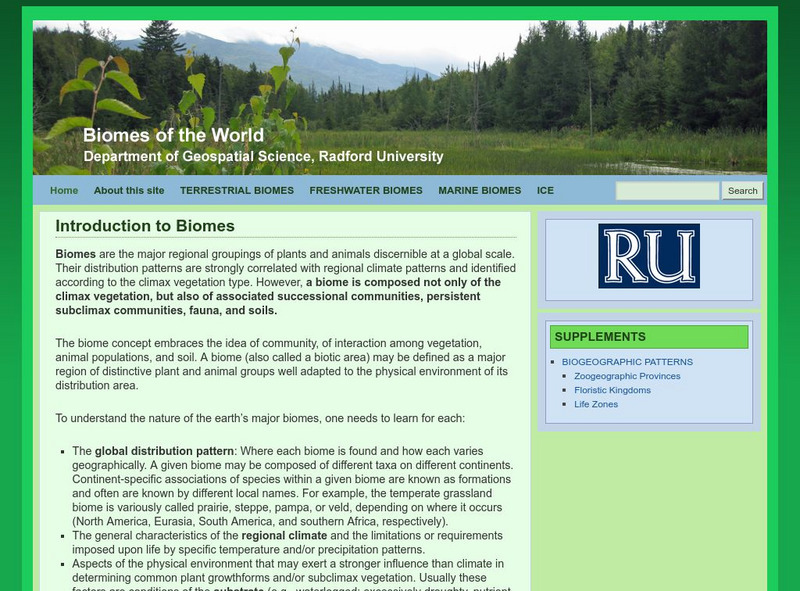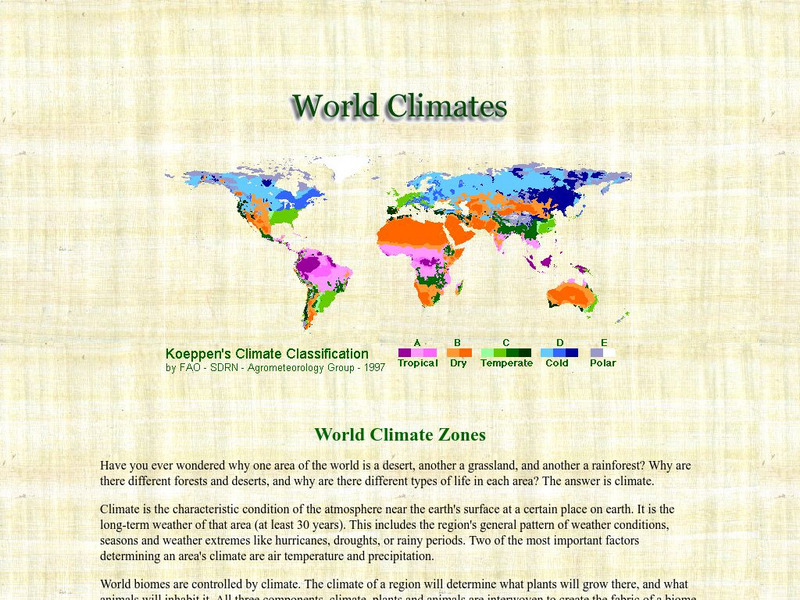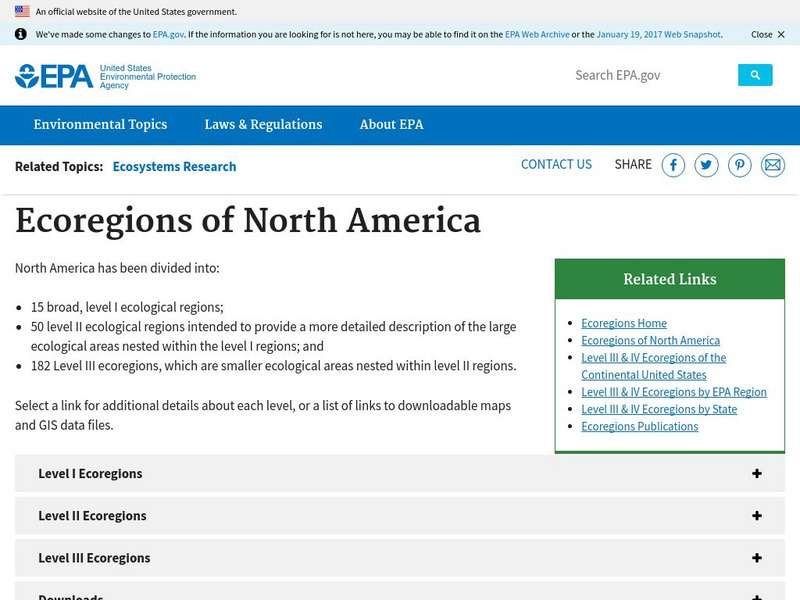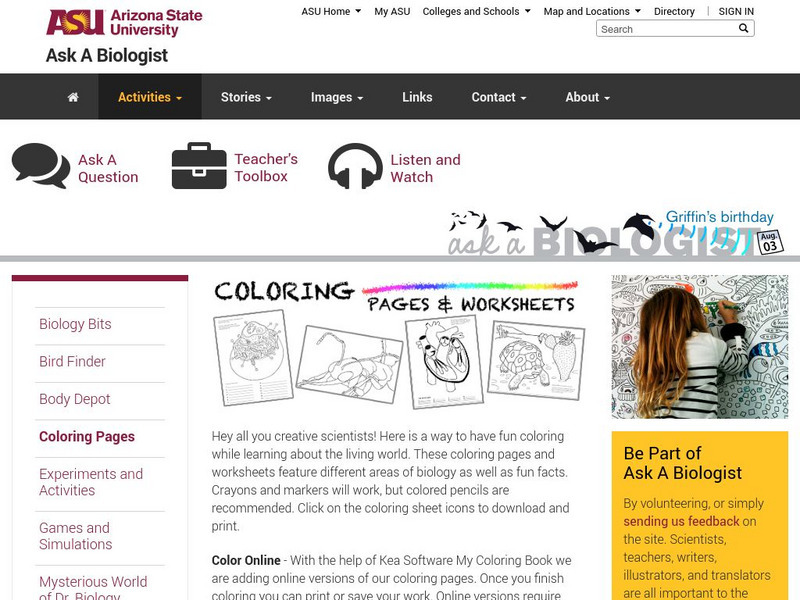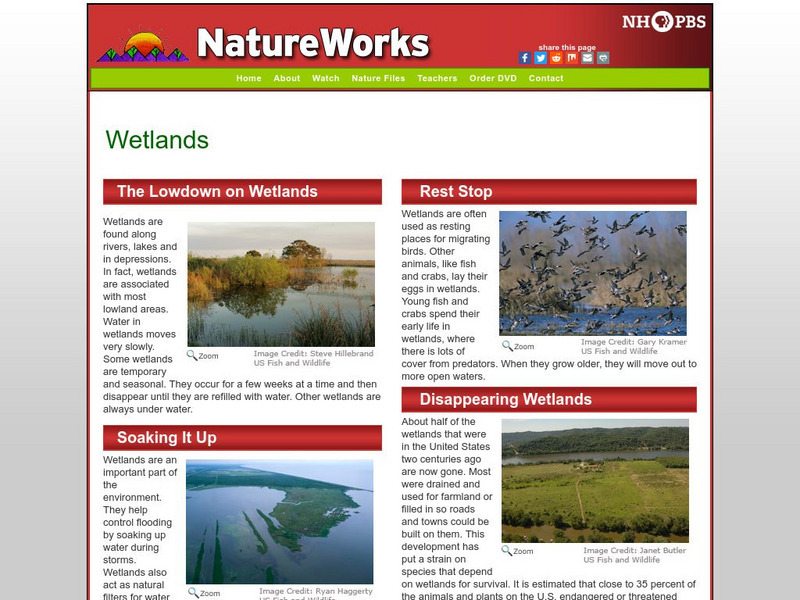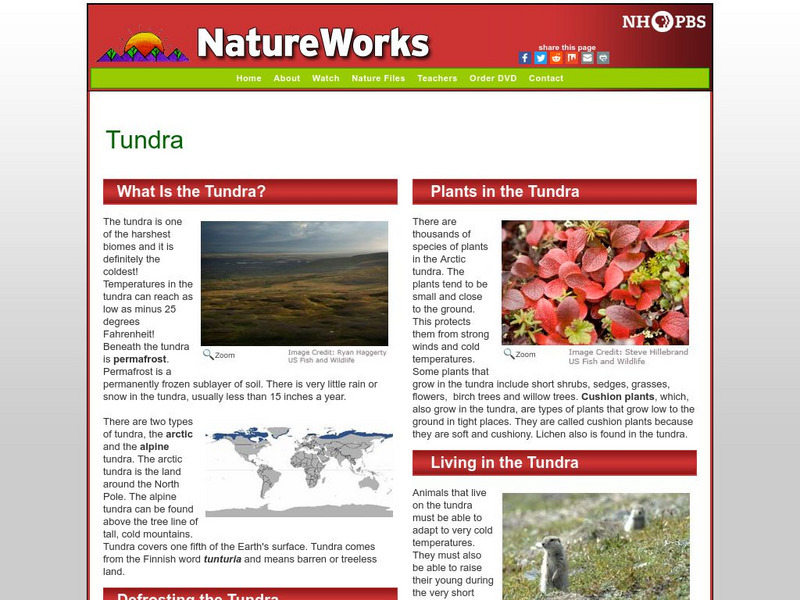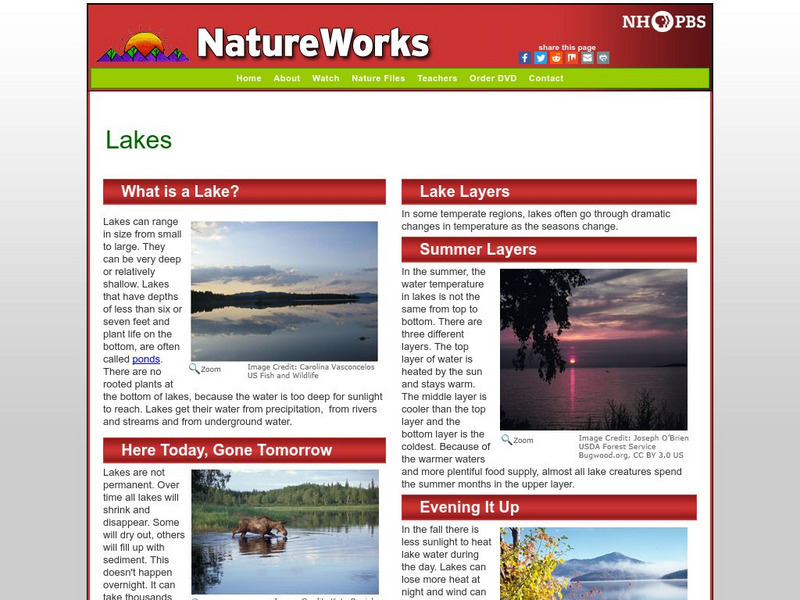Palomar Community College District
Major Biomes of North America
A good review of basic terminology followed by descriptions and pictures of the North American biomes.
Other
World Biomes
World Biomes is a site covering five of the major world biomes: aquatic, desert, forest, grassland, and tundra. It gives information on the various sub-divisions of the biomes and provides numerous images.
Other
Combat Fishing: Ecology of Lakes and Ponds
This site from combat fishing describes the ecology of lakes and ponds for anglers and other fish. It is a very in-depth site with a lot of text, but presented in and easy-to-understand format. The information is very factual and...
Other
Worldbiomes.com: Tundra Biome
Directed toward elementary students, this site provides an overview of the tundra biome. Included are the arctic vs. alpine tundras, links to related biome web sites, world map of biomes, and photographs of the tundra biome.
Other
Worldbiomes.com: Grassland Biome
Directed toward elementary students, this site provides an overview of the grassland biome. Included are the prairies, steppe, and savanna, links to related biome web sites, world map of biomes, and photographs of the grassland biome.
Other
Worldbiomes.com: Desert Biome
Directed toward elementary students, this site provides an overview of the desert biome. Included are the many kinds of deserts, links to related biome web sites, world map of biomes, and photographs of the desert biome.
Other
Introduction to Biomes
This site provides an introduction to biomes. There are also links to each different type of biome.
Other
Blue Planet Biomes: World Climates
Have you ever wondered why one area of the world is a desert, another a grassland, and another a rainforest? Why are there different forests and deserts, and why are there different types of life in each area? The answer is climate.
Everything ESL
Everything Esl: Forest, Deserts and Grasslands
Biomes and Ecosystems unit will increase the interest of the ELL students. Lessons are based on the TESOL, ESL standards.
Morning Earth
Biosphere as Place: Terrestrial Biomes
Students investigate the Biology topic of biomes. The tutorial consists of definitions, pictures, and examples of different terrestrial biomes.
Center for Educational Technologies
Wheeling Jesuit University: Arctic Tundra Biome
Provides text and pictures on the arctic tundra, its animals, plants, and their adaptations.
US Environmental Protection Agency
Epa: Ecological Regions of North America
A helpful map of North America which color codes its 15 ecological regions. Click on the different regions for a brief description of the area.
TeachEngineering
Teach Engineering: A Mini World
As learners learn about the creation of biodomes, they are introduced to the steps of the engineering design process, including guidelines for brainstorming. Students learn how engineers are involved in the design and construction of...
National Earth Science Teachers Association
Windows to the Universe: Climate Changes With Latitude
A map showing the division of the world into eight biomes based on different climate types around the world. There are links to more information about each biome.
Arizona State University
Arizona State University: Coloring Pages and Worksheets in Life Sciences
Collection of coloring pages and worksheets featuring different areas of biology and fun facts. Print pages out to color or download and color online.
Missouri Botanical Garden
Missouri Botanical Garden: Biology of Plants: Plant Adaptations
Read about how plants adapt to survive in different biomes. Includes a song, game, photos, and lesson plans.
Khan Academy
Khan Academy: Ecology: What Is an Ecosystem
Learn what an ecosystem is, how energy and matter move through ecosystems, and what makes an ecosystem stable.
The Wild Classroom
The Wild Classroom: Biomes of the World: Chaparral Biome
Learn all about the Chaparral biome. Find out about plants, animals, adaptations, and conservation efforts.
The Wild Classroom
The Wild Classroom: Biomes of the World: Tropical Savanna Biome
Learn all about the Tropical Savanna biome. Find out about plants, animals, adaptations, and conservation efforts.
The Wild Classroom
The Wild Classroom: Biomes of the World: Temperate Grasslands Biome
Learn all about the Temperate Grasslands biome. Find out about plants, animals, adaptations, and conservation efforts.
Center for Educational Technologies
Center for Educational Technologies: Earth Floor Biomes
This site provides information on the different biomes of the Earth. There are links to related information and other topics.
PBS
Nh Pbs: Nature Works: Wetlands
Did you know that wetlands are frequently used as resting stops for migrating birds? This is just one of the many interesting facts found within this educational resource. This site features information on the characteristics, types,...
PBS
Nh Pbs: Nature Works: Tundra
Can you name the two types of tundra? Find the answer to this question and many more when you explore this educational resource. The content of this site includes a look at this biome's characteristics, plant life, animal life and more....
PBS
Nh Pbs: Nature Works: Lakes
What is a lake? Discover the answer to this question when you explore this informative resource. This site provides information on how temperature and seasonal changes effects lakes, how lakes are formed, how lakes compare in numbers to...








